The coronavirus pandemic hit just as cities and towns were gearing up for spring festivals and summer arts and cultural events. Event restrictions meant that many programs and events aimed at giving families local entertainment or education options were in danger.
In South Carolina, the cancellations have led to some creative workarounds, creating new ways to celebrate culture and community and offer family-friendly activities.
In Newberry, the summer tradition of free outdoor movies transitioned into a cultural throwback, as the city created a pop-up drive-in theater experience. The city set up a 40-foot blowup screen in a city parking lot and used an FM transmitter to allow attendees to listen to the film using their car stereos rather than over loudspeakers.
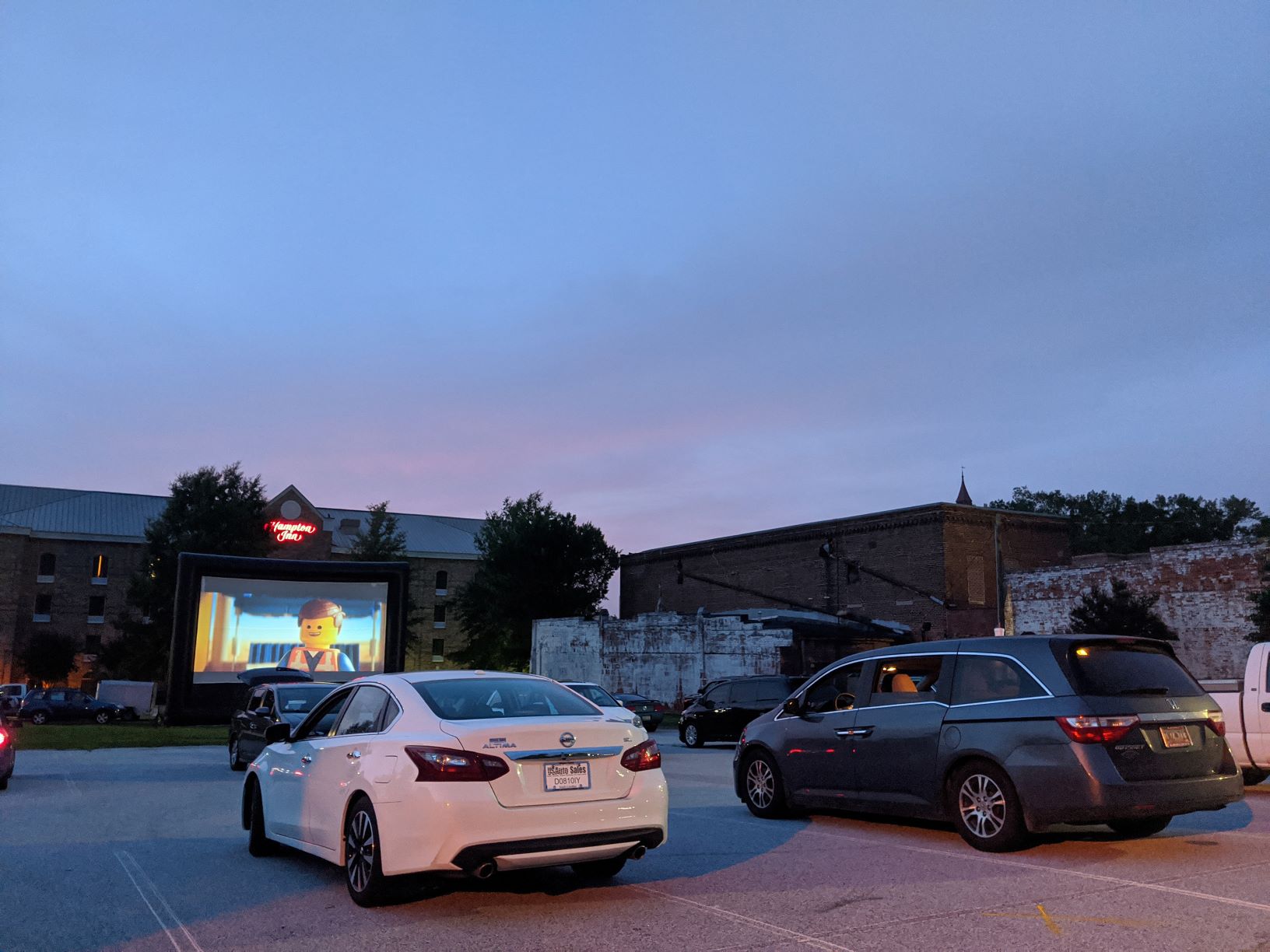
The City of Newberry transitioned its free outdoor movies into a drive-in movie theater in a parking lot. Photo: City of Newberry.
Mary Alex Kopp, Newberry's tourism and events manager, said the drive-in setup accommodates about 50 cars. Assuming four people per car, that would total 200 attendees — a little less than the event's usual crowds when people brought chairs and blankets to sit together under the stars.
Drive-in movie theaters have faded so much from their heyday that most attendees had never been to one, leading to unfamiliarity with the process. Kopp and her team made a short video explaining drive-in rules and etiquette, while also explaining why people couldn't bring their golf carts — state law prohibits driving golf carts on roads after dark. They also explained why pandemic restrictions meant that families needed to stay in their cars.
In the fall, Oktoberfest serves as one of the most important events on Newberry's cultural calendar. The city's largest outdoor festival features arts and food vendors to help celebrate the town's German heritage. Rather than cancel it, the city decided to move the entire event online.
The virtual festival ran for two weeks and included about 30 artisans and craftspeople selling their goods in a virtual vendor fair. Restaurants offered takeout "taste of Oktoberfest" menus and recipes for traditional German dishes that could be made at home. The event also featured lots of at-home activities for kids as well as contests with prizes.
"There is an authenticity to the celebration because of the heritage of the area," Kopp said. "Many people treat it like a homecoming when they come back to visit family and friends. It's sad that we can't do it in the same sense that we always do, but it's nice to try to give them something."
The City of Walhalla did not host its annual Oktoberfest this year, but it has worked to give residents and visitors some ongoing arts and culture opportunities. During the pandemic, Walhalla's small size has worked to its advantage, said Libby Imbody, director of Main Street Walhalla.
"If we have an event and the maximum size we can have is 250 people — that's a good-sized event for us," Imbody said.
Instead of larger outdoor events with vendors and activities all packed together on Walhalla's traditional Main Street, Imbody helped create several smaller events with venues spread further apart.
"Being able to host smaller events to get a couple of vendors out there helps that community that has really had their livelihood taken away by COVID," Imbody said.
"These artists, these makers, are also local small businesses. We need to help out that maker community that has lost a ton of work because there are no events."
One event, the "Dog Days of Summer," focused on bakers and craftspeople who make things for pets.
"People came with their dogs throughout the day," Imbody said. "It was not a huge crowd, but it just kind of keeps it going and keeps Walhalla on people's minds."
The town waived its vendor fee at its farmers market and extended the dates through September.
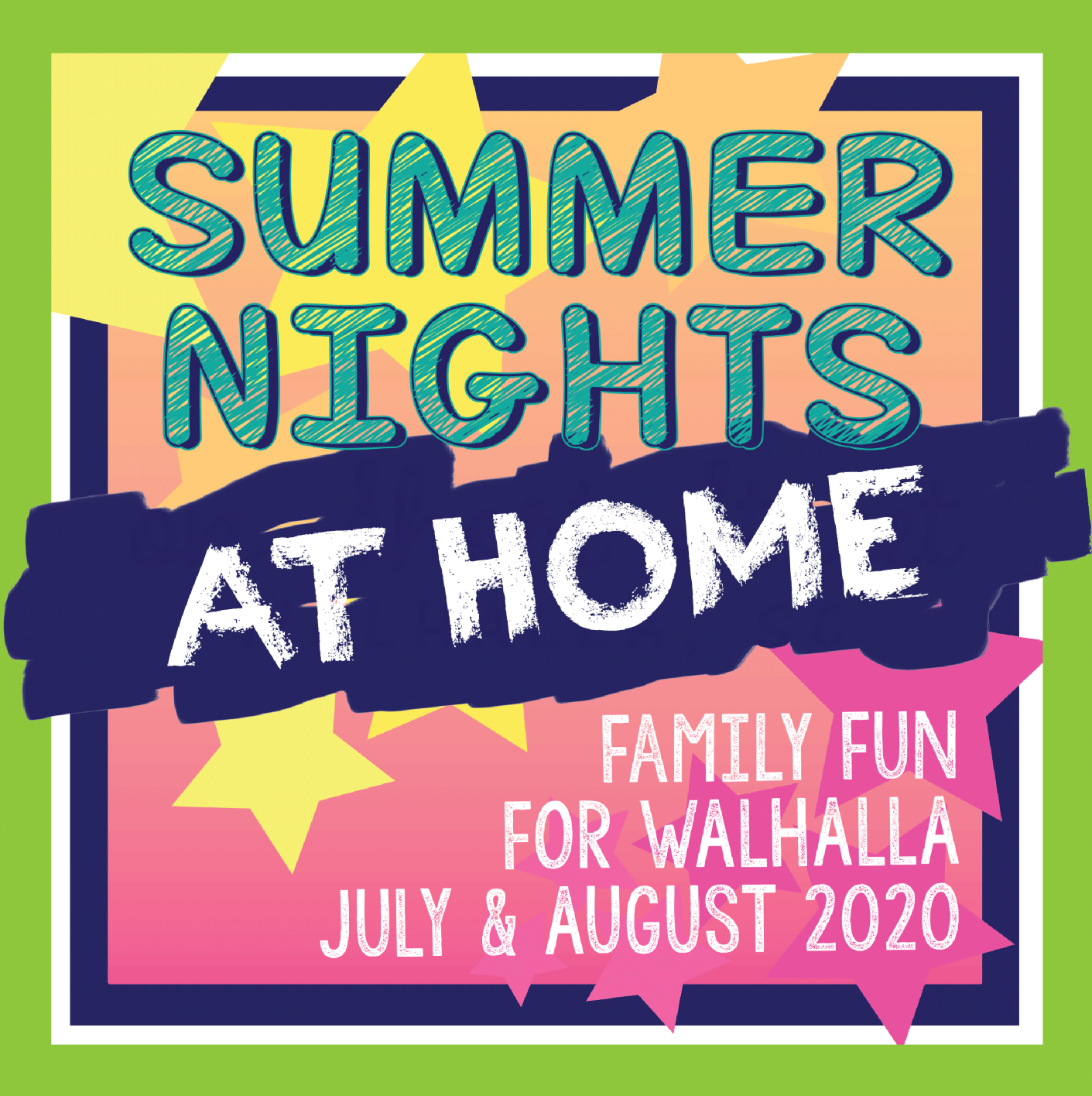
Walhalla also turned its kid-centric "Summer Nights on Short Street," which usually takes place inside museums, into take-home activity kits that parents could pick up and use at home with their children. Families would signed up on Facebook for the event then drove by and picked up the activity kits in advance of the weekend.
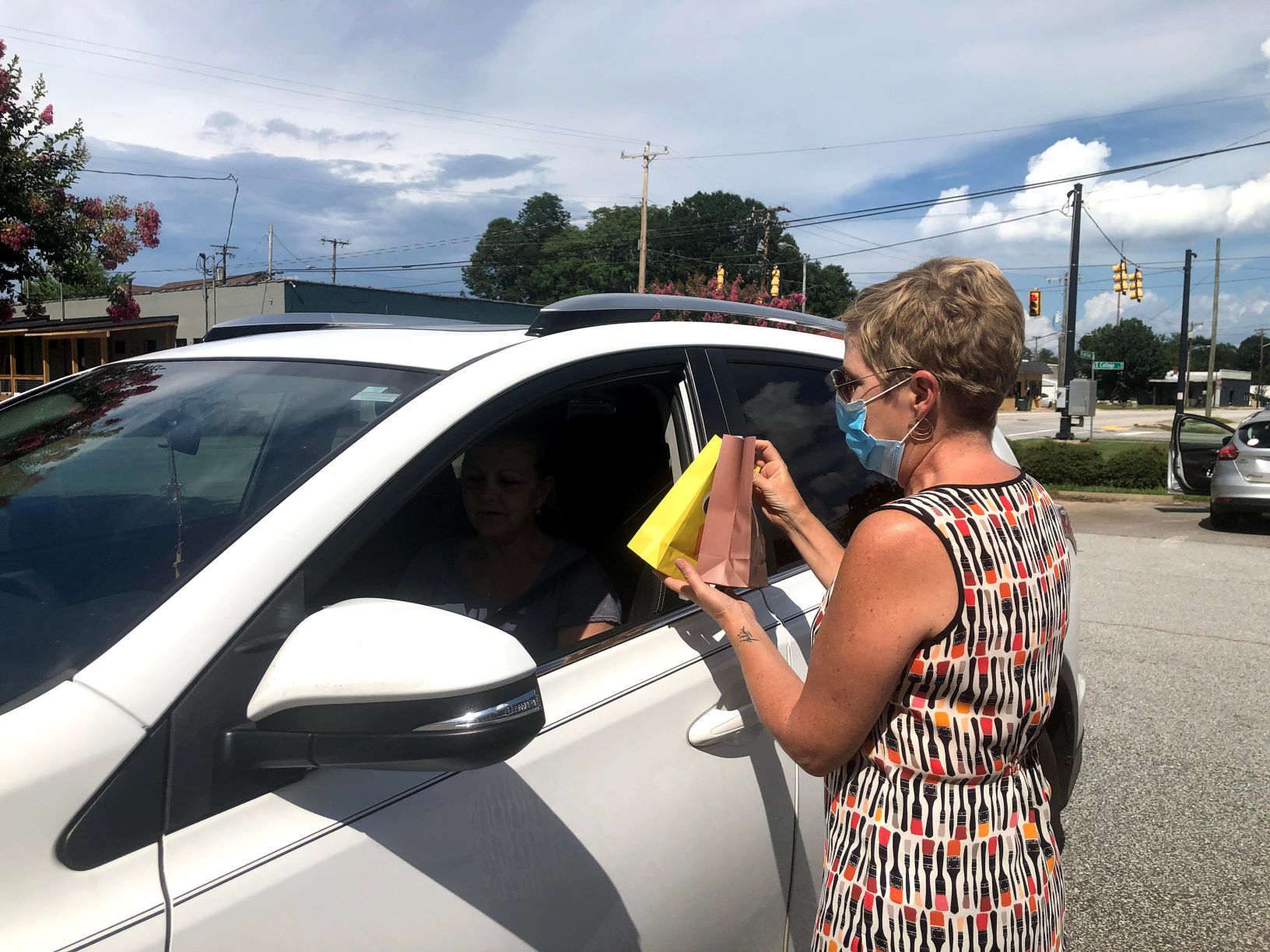
Libby Imbody distributes activity kits for the "Summer Nights on Short Street."
Photo: City of Walhalla.
"Parents could come by and get their stuff, like coloring sheets, different activities, recipes, instructions for games, YouTube and Spotify playlists for each event," Imbody said. "It was a crash-course, last-minute thing, but we had great sponsors for that."
The smaller, more frequent events have been a hit with residents and local businesses.
"We want to take this idea of these smaller events and carry it on post-COVID," Imbody said. "Our merchants have been happy with it. They say, 'Let's do it every weekend.' "
For one city, the response to the pandemic's effect on arts and culture was something they could accommodate all along with a virtual museum. Now, the alternative to museum visits they created has actually increased their "visitors."
The Bertha Lee Strickland Cultural Museum and the Lunney Museum in Seneca tell the stories of the African American experience as well as the story of one of the town's prominent white families in the late 19th and early 20th centuries — the Lunneys.
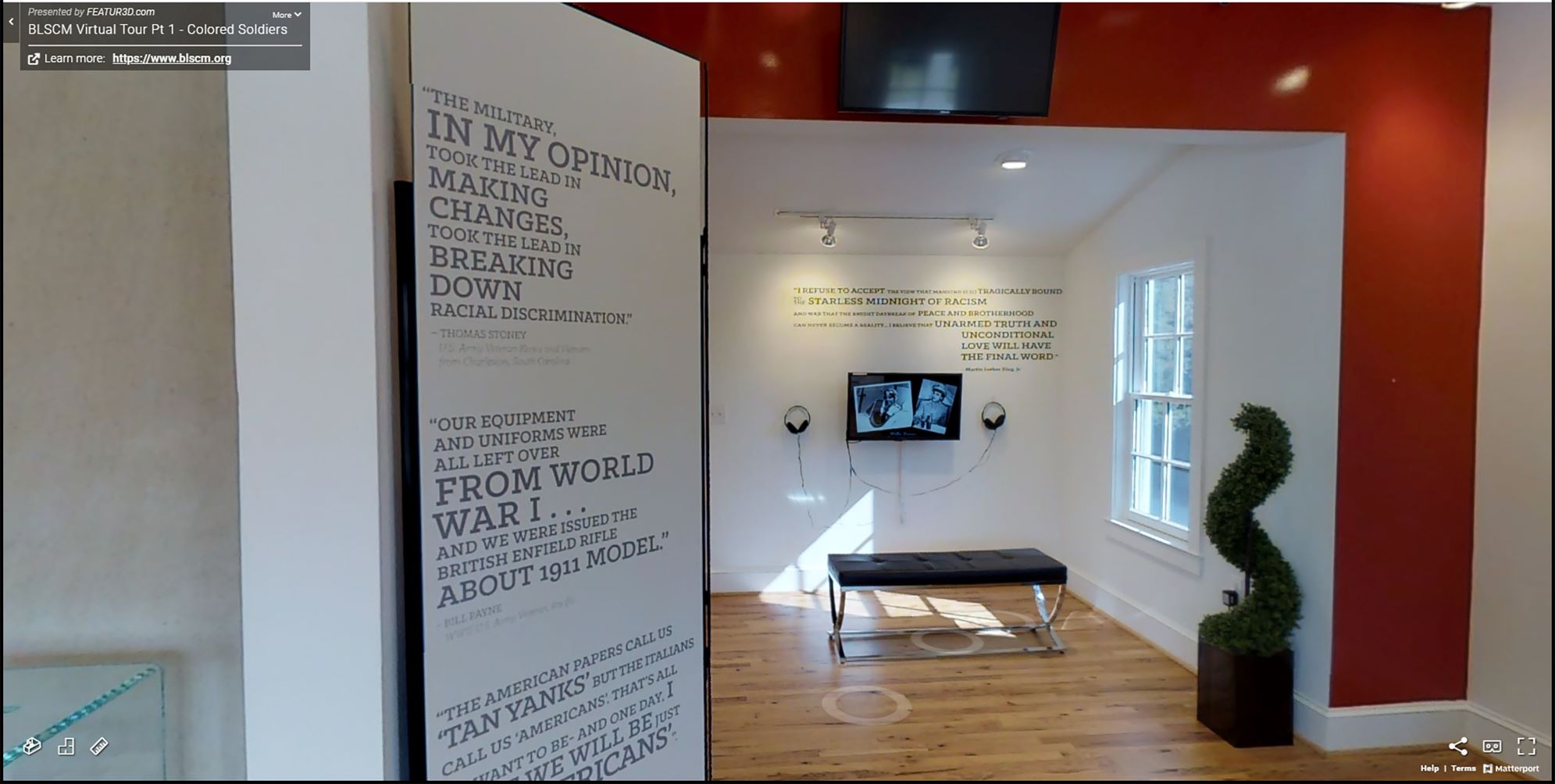
The Bertha Lee Strickland Cultural Museum offers has offered virtual versions of its
exhibits online. Photos: City of Seneca.
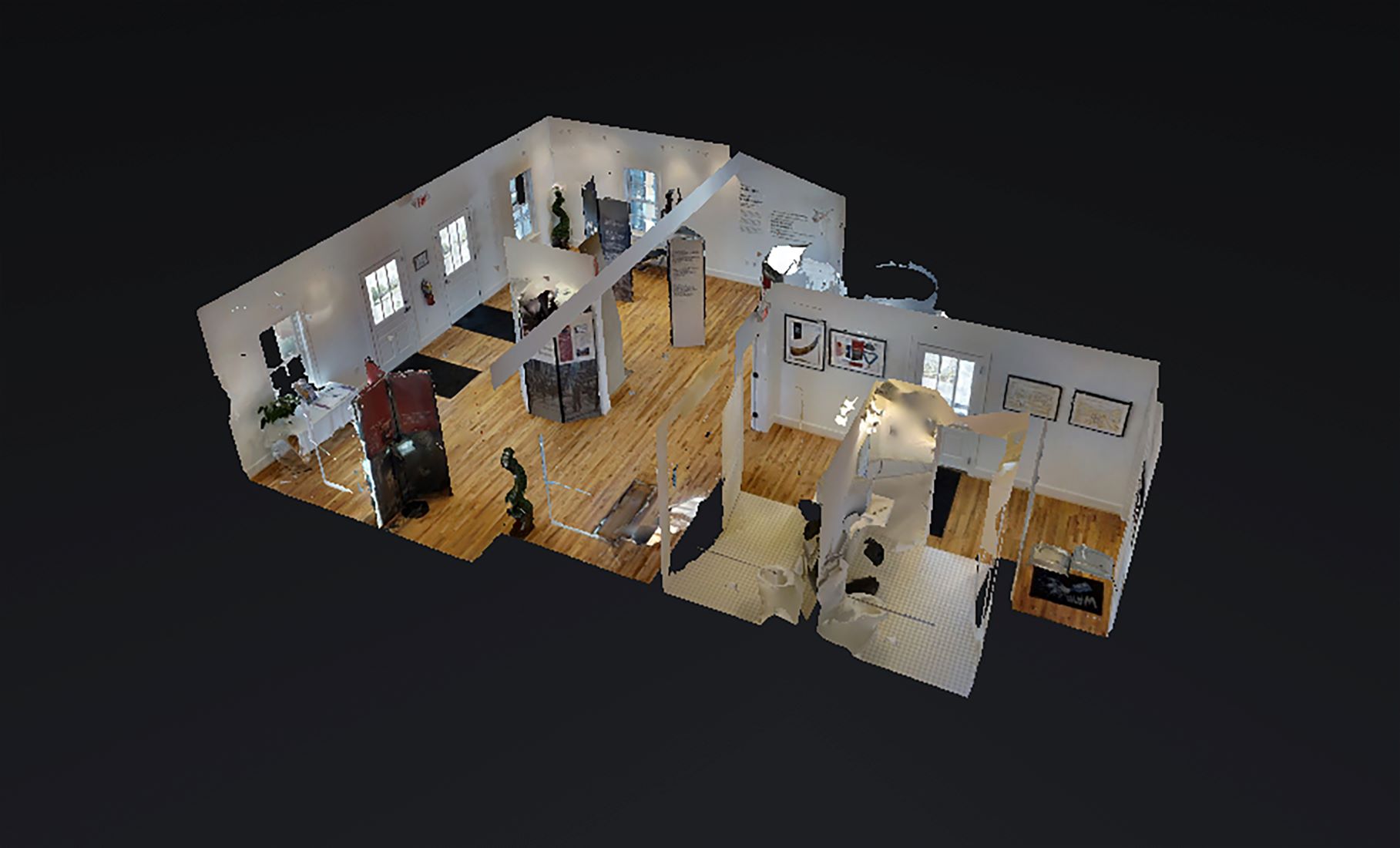
The directors of the two museums, Shelby Henderson and Nick McKinney, work together to create exhibits that tell these stories. When the pandemic hit, they worked quickly to put their limited resources into exhibits online.
"One of the advantages or disadvantages of a small museum is that because you have limited staff, it's a lot easier to pivot," said McKinney, who added that his role is to help convert Henderson's vision into reality — even when it's virtual.
"When you're a larger institution, it takes longer to turn and try to get something new out because so many people and different moving parts are operating, he said. "Trust me, we would love to have more moving parts, but in some ways, it has its advantages, and this is one of those ways. We can say, 'Our new focus is this, how do we make it happen?'"
The result is a collection of virtual exhibits hosted on the museums' own websites, found at www.blscm.org and www.lunneymuseum.org.
These virtual exhibits have shown how a socially distant option can create new opportunities, even during the pandemic, since they have drawn more visitors than the museums themselves drew when they were open. More importantly for Henderson, the exhibits are getting visitors who are coming back multiple times.
"A huge parameter for me was people clicking on it a second time, a third time," said Henderson, who helped the Bertha Lee Strickland museum get started four years ago. "We are close to triple what our visitation would be in person if we had been open."
The pandemic has limited the way cities and towns have been able to host in-person gatherings. Even so, creative changes made by local leaders have allowed for new ways to involve residents and businesses in their communities.
